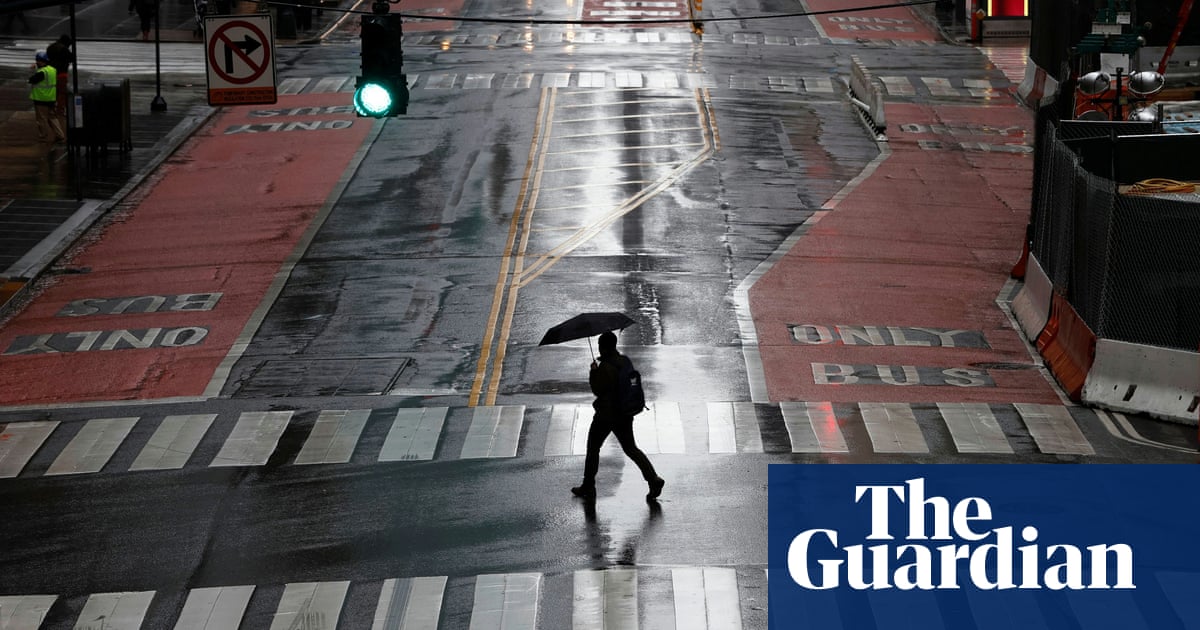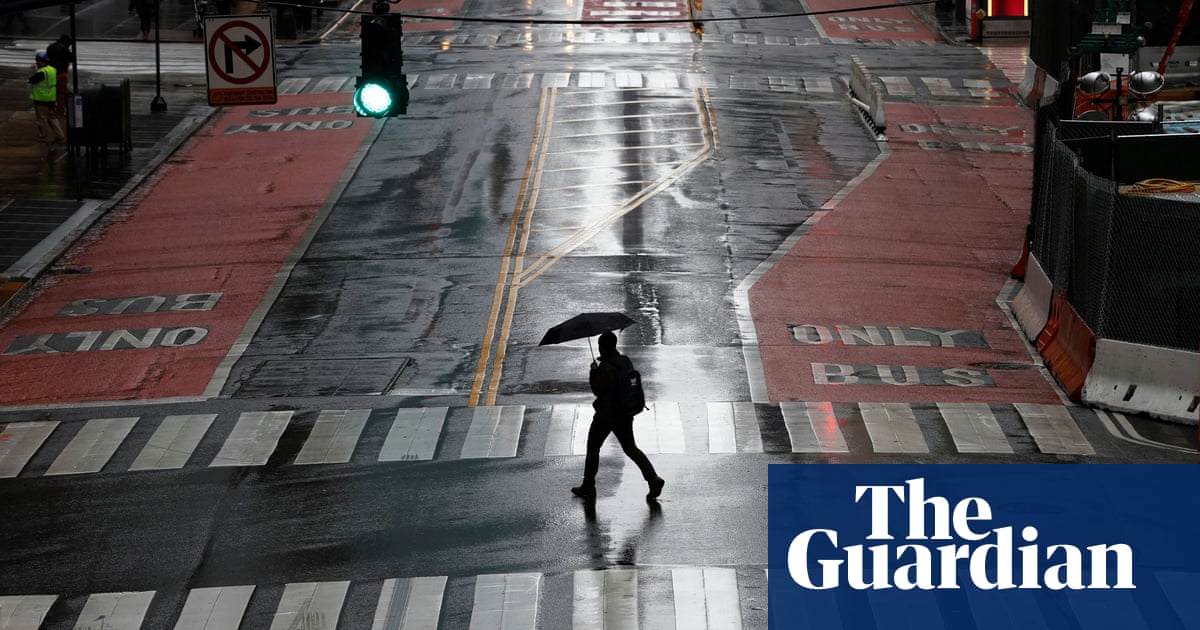‘Being prepared for the worst’ is nothing new for immigrants during Covid-19
For many immigrant and first-generation families who learned to be prepared for the worst, hunkering down to protect each other is nothing new

Sio Massiahs Oakland neighborhood isnt as diverse as the one she grew up in in New York City. Ahead of California governor Gavin Newsoms shelter-in-place order, she had to travel across town to one of just two Bay Area Caribbean markets to grab her favorite foods.
The rare trip showed her just how different her self-quarantine prep was from peers who didnt grow up in a mostly African and Caribbean community.
Sioban M. aka No I CANT help with your account (@JustCallMeSio)
Ive been joking about how Africans and West Indians been prepared for corona. We grew up with canned goods and rice. Buying produce with long shelf lives. Sanitizing everything with dettol.
But It just dawned on me that it means our families always lived in a state of survival.
Before, I never understood why [my family] bought so much rice. But kale isnt going to get me through a pandemic, she quipped. When I got there and rice, plantain and corned beef hash were already gone. I knew all the other West Indians made their runs.
For many immigrant and first-generation families in the US, hunkering down to protect each other in a crisis can be an all too familiar experience. Massiah said growing up in a household of migrants from Antigua and Barbuda, shealways learned to be prepared for the worst.
Back home, they prepared for hurricanes, for shipments not making it from the port, she said. Our families sometimes come from dire situations already, only to come here and struggle to climb the socioeconomic ladder.
So regardless of your experience, survival becomes a way of life. We become our own experts.
But immigrant communities also face unique challenges that are only heightened amid a worsening coronavirus pandemic in the US, especially those concentrated in urban environments.
Migrants in densely populated areas are often subject to crowded housing and use mass transit, making them more susceptible to infection through exposure to others.
Data compiled by News Americas Now, a not-for-profit media organization, showed more than 85 Caribbean nationals have died of Covid-19 in the regions diaspora abroad. The majority are from Massiahs hometown of New York City, where Caribbean nationals from Jamaica, Guyana and more have died.
Census data analysis by the National Immigration Forum shows 17% of the overall workforce is foreign-born, including a quarter who make up the construction industry, and 19% of manufacturing.
Immigrants and their families also tend to earn less than native-born workers. According to the American Sociological Association, those socioeconomic factors can create additional barriers to heath and wellness.
Louise McCarthy, president of the Community Clinic Association of Los Angeles told the LA Times these immigrants face a very tough choice during this crisis: risk exposure or risk homelessness.
A low-income worker cant just take a day off losing a days pay can mean losing your housing, she said.
Immigrant workers from all over may also not have health insurance, or the option to take paid sick leave. This only compounds the risks of developing severe symptoms or death from the coronavirus.
Latino migrants are especially vulnerable. They make up nearly half of the US foreign-born labor force and are overrepresented in the service and farming industries.
According to the Economic Policy Institute, only 16% of Latino workers reported being able to work remotely.
In New York City, Latinx residents make up 34% of coronavirus deaths. The citys health commissioner, Dr Oxiris Barbot, said there are challenges to reassuring the public that hospitals see individuals independent of their immigration status.
The overlay of the anti-immigrant rhetoric across this country has real implications in the health of our community, she said.
The Trump administration instituted an exemption for treatment for Covid-19, but that hasnt stopped deportations or migrants in detention contracting the virus.
Vulnerabilities are magnified when neighbors have to become each others eyes and ears from the attacks of fellow community members. Across the country, Asian Americans, immigrants and businesses have reported an increase in public harassment and anti-Chinese discrimination.
John Yang, president and executive director of Asian Americans Advancing Justice (AAJC), said the rhetoric peddled by lawmakers and perpetuated in the media put Asian American communities at risk.
It brings out the perpetual foreigner syndrome that Asian Americans often face, this notion that no matter how long you have lived in the country, you are an other, he said.That becomes a double or triple threat independent of the virus.
AAJC, along with organizations representing media professionals of color, publicly denounced attempts to blame the spread on Chinese immigrants, and launched a platform for communities across the country to report instances of discrimination or targeted harassment.
While he acknowledged many responses expressed fear of going outside, Yang said it had also become a catalyst for communities to unite. In his neighborhood, residents are talking about how they can support local immigrant businesses.
Mandatory quarantines may force new communities into adapting a survivalist way of life. When the author and illustrator JonnySun urged fellow first-generation Twitter users to share how their upbringings prepared them for the shut-in, many echoed a need to create community in even the most trying of times.
For Massiah, its that sense of strength in numbers that is especially important as immigrant families stay safer at home, yet connected to their communities.
Weve lived the difference between preparation and panic, she said.And that makes a difference now more than ever as we unite to prepare while others fight in panic.
Read more: https://www.theguardian.com/us-news/2020/apr/15/coronavirus-us-immigrant-communities-challenges
